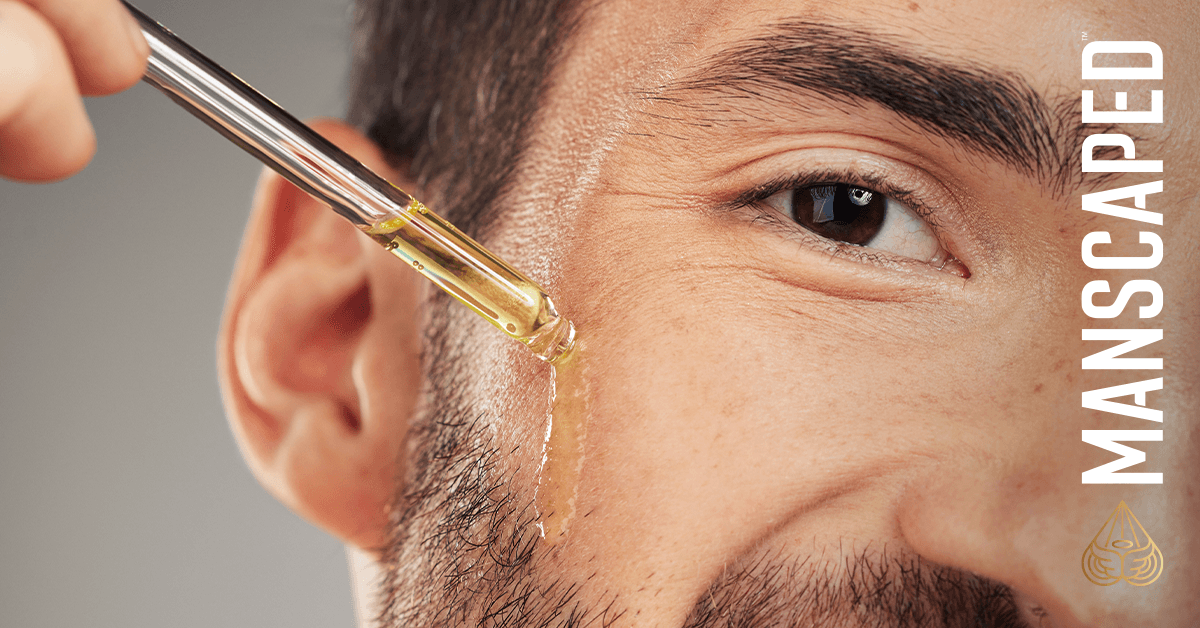
It's time to be serious for a bit. There's a massive effort to improve awareness surrounding testicular cancer, and we want to do our part. That's why Manscaped™ has partnered with the Testicular Cancer Society to help raise awareness for this ball-busting disease.
Talking about ball cancer is a bit like talking about ball grooming. Not always out in the open. But with The Lawn Mower 4.0 trimmer, grooming down below is much easier to do and talk about. So now, we're going to explain to you a bit about testicular cancer. We're going to show you how to check yourself for any signs of the disease and what you should do and inspect if you find something abnormal. It's not a fun conversation, but it's important enough that we should all devote a few minutes to the cause.
Why Should You Check Your Testicles?
Testicular cancer is a scary term. The very idea of a dangerous disease in your balls is enough to make most men shudder. Take that reaction seriously. Testicular cancer is one of the most common forms of cancer that plagues young guys. According to Johns Hopkins research, somewhere between 8,000 and 10,000 guys develop this cancer in the U.S. each year. The average age of those men is 33 years old. That means most guys who get testicular cancer are in their 20s and 30s; this is not an older man's disease.
Testicular cancer is the most common cancer in guys between 15 and 35 years old. Are you young and healthy? That's great, but you should still be checking your balls. You're in the risk group, and early detection is always the key to fighting cancer.
Regular exams — especially self-exams (the majority of are found through self-exams or their partners) self-exams — can identify the early warning signs and help men beat testicular cancer by finding it as soon as it gets going. The earlier the cancer is found, the less invasive the treatments usually need to be. A regular self-exam can save your life, and it can save your balls.
The breast cancer awareness effort dramatically improved early detection for women, and that early detection saves countless thousands of lives every year. It's time to extend the same energy to stopping ball cancer.

How to Check Your Balls
Checking your balls isn't all that difficult. For the most part, you're going to handle the examination yourself. You don't need a regular checkup with a doctor just to look for testicular cancer (although you can have them check if you feel the need).
The Self-Examination
Your self-exam will be the bread and butter of early detection. It takes about five minutes, and once you know what to look for, it's pretty easy. It only takes minutes because you're handling your balls, and that always merits a gentle touch. We can break this process into a few steps.
Step 1 - Know Thyself
The point of a cancer exam is to compare how things change over time. Before you can do a meaningful exam, you have to get to know your balls. Knowing your balls is different from your special alone time. You want to know your balls and sack's shape, feel, and color (although the color is far less important). Your first exam isn't even looking for cancer. You're just getting to know the lay of the land, so you have a baseline for comparison. Your subsequent exams will be looking for changes.
Step 2 - Get Handsy
This is the exam's actual method, and it's the same whether it's your first or 1,000th exam. It's easiest to check yourself in the shower. Warm water (which should not be scalding) relaxes the scrotum and surrounding muscles, making it easier for you to feel lumps or abnormalities without confusing them with solid muscle.
The technique is to pick a side and gently roll your scrotum in your fingers. You're trying to feel the surface of your testicles, and this should not hurt. You're looking for lumps, bumps, and changes. You're also comparing the size. While it's normal for one ball to be bigger, neither ball should significantly change in size over time.
When you're done with one ball, move over to the second.
Step 3 - Stay Calm
Before you worry that you just found a mass, there are a couple of things that you need to know. The first is that a lot of guys think the epididymis is a cancerous lump. It isn't. It's the coiled tubes in the back of each ball. They deliver the sperm that comes out when you're feeling that special kind of happy. They're always there, which is why you should get to know your testes. You should find the tubes on your first exam to rule them out as a mass later on.
The second important thing to know is that not all lumps are cancerous. If you find a lump, you should get it checked (more on that in a bit). But, there's a good chance that your lump is something else. It still merits medical attention, but if it's not cancerous, it's probably not going to be a terrible experience or even hard to treat. Non-cancerous cysts and other lumps can plague the balls. They can be problematic, but they're usually not deadly.
Step 4 - Repeat
A good self-exam should be done once a month. That gives you plenty of chances to find a problem early and get treatment. If you need to, mark it on your calendar. All you need to do is remember to run a check in the shower, so that's simple, but it's important that you don't do this every day. You want time to pass between exams, so you'll notice any changes that happen over time.

Seeing a Doctor
If you find something that concerns you, you need to see a doctor. Likewise, if you're worried that your exams aren't up to snuff, see a doctor. They can check you out and show you how to do subsequent checks with more confidence.
When your doctor follows up on your self-exam, they will probably repeat the process and fondle you a little. There's no need to be concerned. They've seen too many guys' junk to count. They've seen bigger and smaller, and they've seen weirder. Don't sweat it.
As the doctor has a little more expertise than you do, they can pretty quickly determine if you're misunderstanding your own balls or if you need more testing. The most common test is an ultrasound. It's painless and doesn't involve any radiation (including x-rays) or any of that other stuff that scares your balls. Almost always, an ultrasound is sufficient to see if you have any concerning growths.
Dealing With Cancer
It's unfortunate, but some guys will develop testicular cancer. It's not fun, but this is a very treatable disease, especially when you catch it early) which is the whole point of this awareness campaign). It's important to remember that treatments can and do work. If you find yourself in this situation, please reach out to our partners at the Testicular Cancer Society. They specialize in helping men through their diagnosis and beyond. They provide answers to your questions, access to the latest research, and, most of all, a supportive community.
The most common way to deal with testicular cancer is surgery. Surgery around the balls sounds scary, but it's a safe, reliable way to go after cancerous growths. The cancerous area can be surgically removed, but it might make sense to remove the entire testicle in many cases.
That sounds like terrible news, but it's still not the end of the world. Most guys function fine downstairs, even with one ball removed. There is a risk of complications with any surgery, but in many, many cases, guys are absolutely fine. More importantly, removing the entire testicle is a great way to prevent cancer from returning, and that can save your life.
With more aggressive cancer, surgery is usually the only answer, plus chemotherapy and radiation therapy. Before any of that begins, you'll have a specialist who explains the treatments and what they mean. The good news is that even when these therapies are required, most guys make a full recovery and are perfectly healthy at the end of it all.
The most crucial thing in cancer treatment is communication with your doctor (or doctors). Bring up your concerns. Take time to understand their answers. Get multiple opinions, and be as proactive as you can. Testicular cancer is one of the most treatable cancers out there, but only when it's found. Do your exams, and you'll already be ahead of the curve.
This brings us to the final point. Guys need to stick together on this. No one likes talking about cancer. We also shy away from serious conversations about each others' junk, but this is one exception that needs to be made. If you can check yourself for cancer, you can also talk to the other guys in your life about doing the same. When these checks become normal, early detection will rule the day, and we can save many lives. It's a joint effort, so please, be part of the solution and make sure your guy friends and relatives know how to check themselves.
04.07.21
Share

Featured Articles
- Your Favorite Ball Deodorant. Now with a New Scent: Perservere.MANSCAPED® + TCS for Testicular Cancer Awareness MonthIntroducing The Lawn Mower® 5.0 Ultra TCS Special Edition and TCS Ball Hero BundleThe Dome Shaver™ Pro vs. The Dome Shaver™ Plus: Which Should You Choose?The Chairman™ Pro vs. The Chairman™ Plus: Which Should You Choose?



